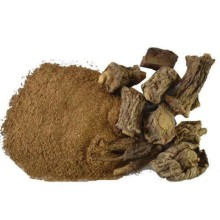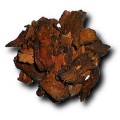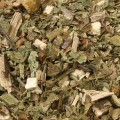 Loading... Please wait...
Loading... Please wait...- Home
- About Us
- Shipping, Returns & FAQ's
- Contact Us
-
For Your Information
- Canadian Customers Have a Choice if Shipping Via UPS
- Aura Cacia Homemade Aromatherapy Recipes
- Bella Nella Altered Art & Paper Crafts Blog
- Forms of Herbal Preparations
- Laundry Tips To Conserve Energy Blog from The Laundress
- The Story of Frontier Natural Products Co-Op
- Sovereign Silver Hydrosol and Aloe Protocol Stops Downward Spiral of Gut Dysbiosis
- Disclaimers
- Recommended Links
- RSS/Recent News
- The Story of Typhoon Housewares
- Reviews/Testimonials
- Raw Ingredients for Mfg
Anantamul Root Bulk
Product Description
![]() Anantamul is an astounding blood-purifying herb that has immense regenerative properties
Anantamul is an astounding blood-purifying herb that has immense regenerative properties
Prized for its medicinal roots, Anantamul literally means ‘eternal roots’. It goes by the botanical name Hemidesmus indicus and belongs to the Periplocaceae family. It is intrinsically blessed with Ropana (healing) and Raktashodhaka (blood purifying) qualities which makes it a highly powerful ayurvedic herb that has been used for centuries by several Ayurvedic sages and physicians. It is not only used in folk medicine but also forms a vital ingredient in Ayurvedic and Unani preparations. It is widely used externally as well as internally for the treatment and management of a host of skin problems like psoriasis, eczema, ringworm, thrush, and bacterial-related skin disease.
Ayurvedic Energetics
Rasa (taste): sweet, bitterVirya (action): coolingVipaka (post-digestive effect): sweetDoshas (constitutions): Balancing for all doshas, especially good for pitta
Constituents
The root contains fatty acids, tannins, saponins, sterols, β-sitosterol and stigmasterol, whereas the stem part contains glycosides, emdine and hemidescine. While the Anantamul leaves contain hyperoside, rutin, tanins, saponins, hemidesmine and hemidesminine, the blooms of Anantamul usually contain hyperoside, rutin and isoquercitin.
Enriched with these phyto-chemical components, Anantamul portrays potent digestive, anti-inflammatory, broncho-dilatory, pain-relieving, hepatoprotective, detoxifying, anti-microbial, chemopreventive, anti-cancerous, immuno-modulatory, antioxidant, anti-diarrheal, diuretic, and anti-leprotic properties. And eventually these properties extensively help in treating and providing relief from liver infections, skin conditions including pimples, eczema, psoriasis and vitiligo, indigestion, constipation, allergy, asthma, blood infections, and ulcers.
Benefits Of Anantamul*
- Promotes Digestion
- Fights Respiratory Issues
- Remedies Liver Anomalies
- Promotes Cardiac Functioning
- Skin Health (acne, eczema, psoriasis,etc)
Dosage
The accurate therapeutic dosage of the Anantamul may vary from person to person depending upon the age, severity, and condition of the patient. One must talk to an ayurvedic doctor or practitioner, as he or she will thoroughly examine the indications and prescribe the effective dosage for a specific period.
1. For infertility and sexual debility:
For Women: Mix 1/4 tsp of Anantamul, 1/4 tsp of Shatavari, 1/4 tsp of Vidari and 1/4 tsp of ghee in 1/2 cup of warm water. This can be taken three times daily before meals. If available add in a small pinch of Pippali powder to each dosage.
For Men: Mix 1/4 tsp of Anantamul, 1/4 tsp of Ashwagandha, 1/4 tsp of Bala and 1/4 tsp of ghee in 1/2 cup of warm water and take three times daily before meals.
2. During Pregnancy:
Take 1/4 tsp of Anantamul, 1/4 tsp of Bala, 1/4 tsp of Shatavari, a small pinch of ginger, 1 tsp of honey and 1/2 tsp of ghee, mixed in 1/2 cup of warm milk (substitute with Almond or Hemp Milk). Take this twice daily, once in the morning and again before bed.
3. For detoxification and blood and liver cleansing:
Take 1/4 tsp each of Anantamul, Neem, Manjistha, and Guduchi, mixed in 1/2 cup of warm water, three times daily before meals.
4. For increasing strength and rejuvenation:
Take 1/2 tsp of Anantamul and 1/2 tsp of Bala mixed in 1/2 tsp of ghee and 1/2 tsp of honey. Wash down with warm water. This should be taken in the morning (before food) and again around 2-3pm.
5. Reducing anger and irritation (and all Pitta emotions):
Take 1/2 tsp of Anantamul and Brahmi (blend 1:1) mixed in 1/2 cup of warm water. If needed you can also add in 1/4 tsp of ghee to each dosage. This can be taken three times daily after meals.
6. Increasing digestion without increasing heat:
Take 1/4 tsp each of Anantamul, Fennel (powder) and Guduchi, with a pinch of Pippali powder and 1/4 tsp of ghee. This should be taken consistently up to 30 minutes before each meal.
7. Reducing inflammation in the GI tract:
Take 1/4 tsp each of Anantamul, Licorice and Shatavari, with 1/8 tsp of Kamadudha (if available). Mix this in warm water and take before each meal. **This should be done simultaneously while taking a Pitta-reducing diet.
Precautions
Infused with strong bioactive components, this traditional herb displays no recorded side effects when used in the correct proportion. An overdosage of Anantamul can cause intestinal discomfort, runny nose and symptoms of asthma.
aka
English: Hemidesmus indicus, Indian sarsaparilla, Tylophora, False sarsaparilla, Pseudosarsa, Periploca indica, Magarbu
Hindi: Anantamul, Sugandi Pala
Malayalam: Nannaari
Tamil: Suganthi Paalaa, Suganthipaalaa, Nannari
Telugu: Sugandhi
Bengali: Anantamul
Assamese: Anantamula
Kannada: Anamtamula
Oriya: Suguddimalo in Oriya
Marathi: Anantavel, Upalsari
Sanskrit: Anantamula, Balyam, and Shariva.
Botanical Name: Hemidesmus indicus
Origin: India
Notes: Kosher Certified. Non-irradiated. Non-GMO. Individuals must exercise their independent judgment in determining its appropriateness for a particular purpose or use. As with any manufacturing process, we suggest a small, lab-scale manufacturing for evaluation purposes prior to full commercial manufacturing.
Specifications are subject to change without notice.
References
You Recently Viewed...
Currency Converter
Choose a currency below to display product prices in the selected currency.





























